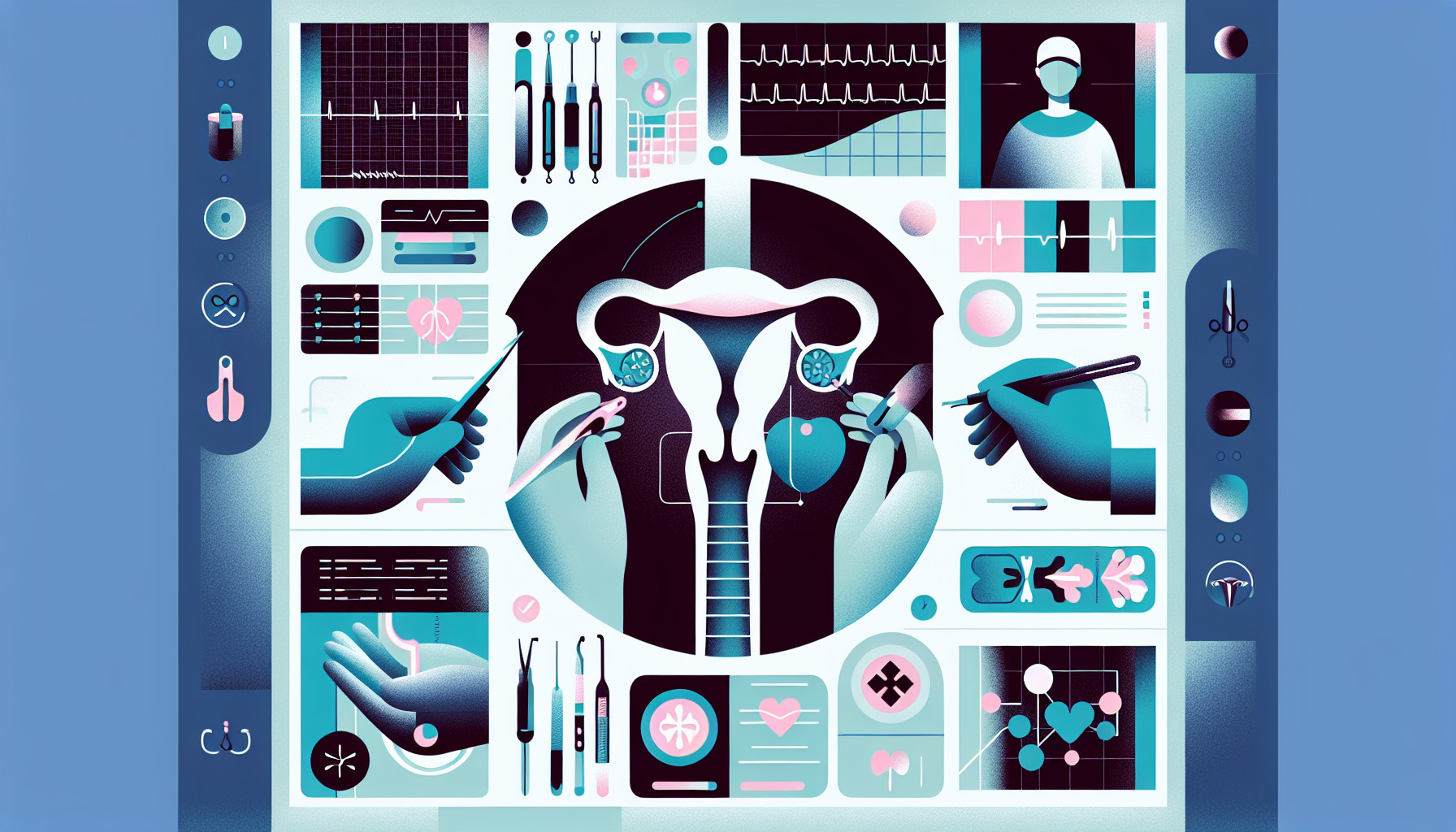Our Summary
This research paper talks about a method called endometrial ablation, which has significantly improved the treatment of heavy menstrual bleeding. The newer version of this technique has made it possible for doctors to establish specialized clinics where they can treat heavy menstrual bleeding effectively without the need for strong anesthesia. This paper provides detailed information about different endometrial ablation systems, as well as the ideal strategies for outpatient endometrial ablation. It also discusses potential risks, complications, and reasons why some patients might not be suitable for the procedure.
FAQs
- What is endometrial ablation and how does it improve the treatment of heavy menstrual bleeding?
- What are the potential risks and complications of endometrial ablation?
- Why might some patients not be suitable for the endometrial ablation procedure?
Doctor’s Tip
One helpful tip a doctor might tell a patient about endometrial ablation is to discuss the potential risks and complications associated with the procedure. It is important for patients to be aware of any possible side effects or complications that may arise, such as infection, scarring, or changes in menstrual patterns. By understanding the risks involved, patients can make informed decisions about their treatment options and be prepared for any potential outcomes.
Suitable For
Patients who are typically recommended endometrial ablation are those who suffer from heavy menstrual bleeding that has not responded to other conservative treatments such as medication or hormonal therapy. Endometrial ablation is also recommended for patients who have completed childbearing and do not wish to undergo a hysterectomy. Additionally, patients who have certain medical conditions that make them poor candidates for surgery or anesthesia may also be recommended for endometrial ablation.
However, there are certain patients who may not be suitable candidates for endometrial ablation. These include patients who are pregnant or planning to become pregnant in the future, patients with certain types of uterine abnormalities or conditions, patients with a history of endometrial cancer, and patients with certain medical conditions that may increase the risk of complications during the procedure.
Overall, endometrial ablation is a safe and effective treatment option for patients who suffer from heavy menstrual bleeding and meet the appropriate criteria for the procedure. It is important for patients to discuss their medical history and treatment options with their healthcare provider to determine if endometrial ablation is the right choice for them.
Timeline
Before endometrial ablation:
- Patient experiences heavy menstrual bleeding, also known as menorrhagia, which can be disruptive to daily life.
- Patient may undergo various tests and evaluations to determine the cause of their heavy bleeding, such as pelvic exams, ultrasounds, and blood tests.
- Patient may try conservative treatments such as medications or hormonal therapies to manage their symptoms before considering more invasive options.
- Patient and doctor discuss the option of endometrial ablation as a potential treatment for heavy menstrual bleeding.
After endometrial ablation:
- Patient undergoes the endometrial ablation procedure, which involves removing or destroying the lining of the uterus to reduce or eliminate menstrual bleeding.
- Patient may experience some cramping or discomfort immediately following the procedure, but this typically resolves within a few days.
- Patient may have lighter periods or no periods at all after the procedure, depending on the effectiveness of the treatment.
- Patient follows up with their doctor to monitor their symptoms and ensure that the procedure was successful in reducing their heavy menstrual bleeding.
- Patient may need to use contraception or undergo additional treatments if they wish to prevent pregnancy after endometrial ablation, as it can increase the risk of complications during pregnancy.
What to Ask Your Doctor
Some questions a patient should ask their doctor about endometrial ablation include:
- What are the benefits of endometrial ablation compared to other treatments for heavy menstrual bleeding?
- What type of endometrial ablation system will be used for my procedure and how does it work?
- What are the potential risks and complications associated with endometrial ablation?
- How successful is endometrial ablation in reducing or eliminating heavy menstrual bleeding?
- Are there any reasons why I may not be a good candidate for endometrial ablation?
- What is the recovery process like after endometrial ablation and when can I expect to resume normal activities?
- Will I still be able to have children after undergoing endometrial ablation?
- How long does the effects of endometrial ablation typically last?
- Will I need any follow-up appointments or additional treatments after the procedure?
- Are there any lifestyle changes or precautions I should take after undergoing endometrial ablation?
Reference
Authors: Kumar V, Chodankar R, Gupta JK. Journal: Womens Health (Lond). 2016 Jan;12(1):45-52. doi: 10.2217/whe.15.86. Epub 2016 Jan 12. PMID: 26756668
